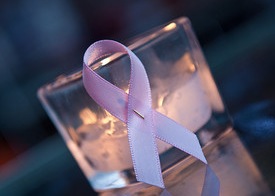- Zeynep Tufekci (Professor of Sociology and Public Affairs at Princeton) wrote an op-ed for the New York Times in response to the media frenzy surrounding Kate Middleton’s disappearance from the public eye for an unspecified surgery. Tufekci compares the public response to prior treatment of Meghan Markle, highlighting the double standards and arguing that “trapping women in constraining public roles, pitting them against one another and reducing them to symbols of virtue or vice is a powerful and politically expedient distraction” but is harmful all around.
- Anna Mueller (Associate Professor of Sociology at Indiana University) and Seth Abrutyn’s (Assistant Professor of Sociolgoy at the University of British Columbia) upcoming book Life Under Pressure: The Social Roots of Youth Suicide and What to Do About Them examines a high-income community’s experiences with youth suicide clusters. Mueller and Abrutyn found that students in the community faced intense academic pressure and that “fear of failing to meet expectations had a negative impact on their mental health.” This story was covered by Mirage News.
- DW – South Africa ran a story on how US fundamentalist Christian churches are promoting negative sentiments against LGBTQ+ people and abortion rights in Africa. Haley McEwen (Postdoctoral Researcher at the University of Gothenburg) commented that “US Christian right-wing groups have been very active in the US foreign policy since the early 2000s,” promoting “family-friendly agendas” and funding homegrown African organizations with aligning political agendas.
- South African sociologist Edward Webster (Founder of the Society, Work & Politics Institute at the University of Witwatersrand) recently passed away at the age of 81. In a profile of his life and work, Michael Burawoy (Professor of Sociology at UC Berkeley) wrote that Webster’s sociological practice is marked by “the intimate connection between his academic and his public lives: the one inseparable from the other. The Webster windmill takes in the winds of change—social, political, and economic winds—and turns them into a prodigious intellectual engagement.”
- The New York Times ran a story discussing the upcoming election in Russia. Greg Yudin (Professor of Political Philosophy at The Moscow School of Social and Economic Sciences and Visiting Research Scholar at Princeton) commented that anxieties and uncertainties over the war are drawing voters to Vladimir Putin: “There are fears about what will happen if we don’t win: We will be humiliated, everyone will be prosecuted, we will have to pay huge reparations — and basically put under foreign control. These fears are fueled by Putin, who has also positioned himself as the only one who can end the war.”






